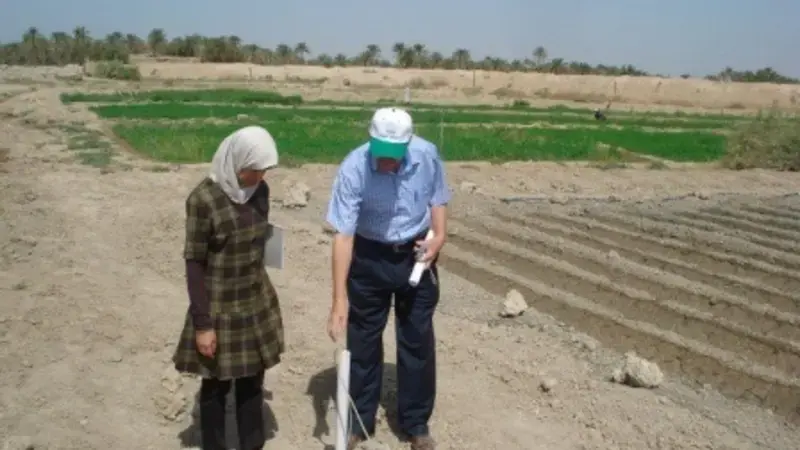Combating salinity to increase food production

In an interesting research finding, scientists have identified a salt tolerant gene in soybean that also increases grain yield.[1] This opens up possibilities for exploring similar traits in other legumes as well. Salinity is one of the most severe environmental factors limiting agricultural productivity. Salt tolerant legumes will be crucial in increasing farm profitability.
‘Soybean is a good source of nutrition with 36% protein, 30% carbohydrates, and excellent amounts of dietary fiber, vitamins, and minerals,’ said ICARDA’s Dr. Aladdin Hamwieh, who joined the research team managed by Dr. Donghe Xu from the Japan International Research Center for Agricultural Sciences (JIRCAS).
Soybean, a major industrial and food crop, is generally more salt-sensitive as compared to other major crops such as wheat, rice and cotton. Salt stress inhibits soybean germination, plant growth, nodule formation, and seed yield. To address this challenge, a salt tolerance gene Ncl was isolated using map-based cloning strategy, and salt tolerance lines in soybean were produced through fine mapping using DNA marker-assisted selection (MAS).
When evaluated in salt stress field conditions, the Ncl gene was found to increase soybean grain yield around 3.6–5.5 times. ‘This salt tolerance gene Ncl can be used in soybean breeding through gene transfer. It would contribute to sustainable soybean production in saline prone areas,’ explained Dr. Hamwieh.
To confirm the general effect of Ncl, field tests for salt tolerance are currently in progress in China, India, and Indonesia. The multi-environmental tests will give further insights into the effect of Ncl in these regions using different kinds of salt soils.
Rising salinity is fast becoming a silent killer of productive lands in areas like the Indo-Gangetic Basin, Euphrates River Basin, Nile Delta, and Aral Sea Basin. The global cost of salinity-afflicted loss in crop yields is roughly 27.3 billion USD per year, according to a recent study, ‘Economics of Salt-induced Land Degradation and Restoration’, published by CGIAR’s Research Program on Water and Land Ecosystems. Furthermore, the salinized areas are increasing at a rate of 10% annually for various reasons.
To address these problems of increasing soil and water salinity that negatively affect food production, Dr. Hamwieh suggested that this newly identified gene Ncl, could be transferred to legumes that are more commonly grown in these salinity afflicted countries. Further investigations could be carried out for this particular gene in various legumes to make them salt tolerant and also increase their grain yield.
[1] Do, T. D., Chen, H., Hien, V. T., Hamwieh, A., Yamada, T., Sato, T., Yan, Y., Cong, H., Shono, M., Suenaga, K., & Xu, D. Ncl Synchronously Regulates Na+, K+, and Cl– in Soybean and Greatly Increases the Grain Yield in Saline Field Conditions. Sci. Rep. 6, 19147; doi: 10.1038/srep19147 (2016).
